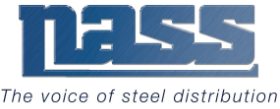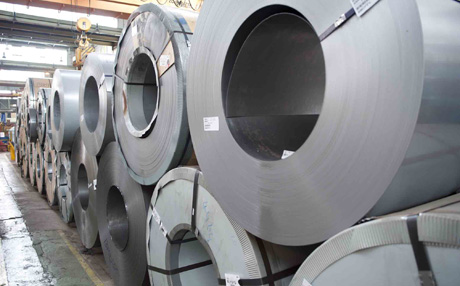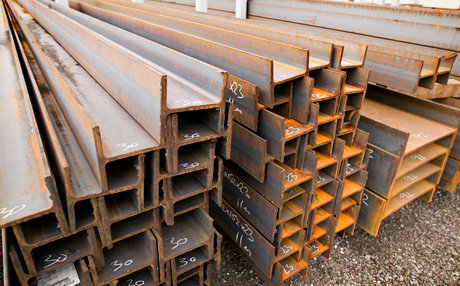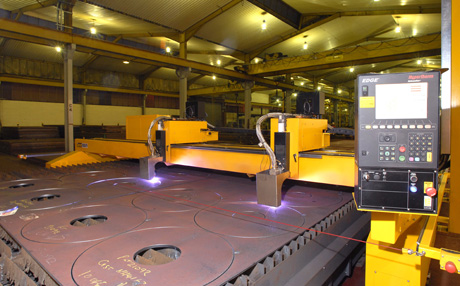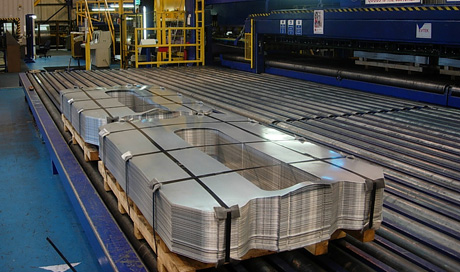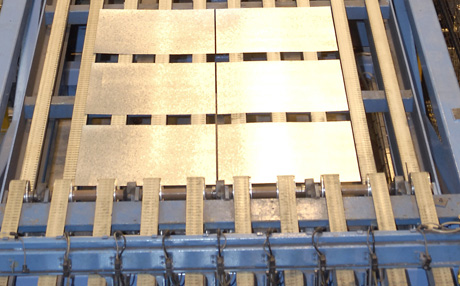The objects of the Association shall be:
a) To promote the mutual consideration and discussion of all questions affecting the interests of Members with a view to decision or concerted action.
b) To protect, promote and further the interests of Members and to provide facilities for mutual co-operation in all matters affecting their interests.
c) To promote research and technical efficiency and the furtherance of consumers' interests.
d) To represent to the legislature, steel producers and other public bodies and private bodies, the views and interests of steel service centres; to promote and support or to oppose legislative and other measures affecting their interest; and to take all steps as may seem expedient for altering and improving any existing laws, customs or usage's affecting such interests.
e) To do all such other acts and things as may appear to be of benefit to the Members of the Assciation.
Membership of the Association shall be open to any bona fide steel service centre in the United Kingdom of Great Britain and Northern Ireland who satisfies the qualifications laid down from time to time by the National Council.
Any Member who ceases to operate as a steel service centre of the products specified under Rule 4 may, at the discretion of the National Council, remain in Membership as an Affiliated Member. Affiliated Members will be required to pay the minimum subscription as determined from time to time by the General meeting and shall have no voting rights.
Suppliers of equipment, goods or services to the steel stockholding industry may, by a two-thirds majority vote of the National Council, be admitted as Associate members, subject to annual confirmation. Associate Members may not join Product Groups and have no voting rights.
Steel producing companies may apply to become Associate Producer Members of the Association. They may not join Product Groups and have no voting rights but will participate in regular Liaison Meetings with Full Members.
The Products coming within the purview of the Association are prime ordered black carbon steel, alloy steel, stainless steel and bright carbon steel, and such other steel Products as shall be determined from time to time by the National Council.
Election of Members shall be by the National Council. The forms of application for Membership and the manner of election shall be such as the National Council may from time to time determine. Every Member upon election shall be bound by these Rules and by such other conditions and arrangements, if any, as may be in existence at the time of election or which may come into force during the period of Membership.
In the case of any new applicant, or of any Member who is removed from Membership of the Association, or who resigns and who makes application for re-election, the President's Committee representing National Council shall be entitled in their sole discretion to require an entrance fee, in an amount to be fixed by them in each particular case, to be paid by the applicant as a condition of election or re-election, or to refuse their application for such period as they deem fit.
The Officers of the Association shall consist of a President, Immediate Past President, President Elect, Honorary Treasurer and up to two Vice-Presidents. The Officers shall be elected annually at the Annual General Meeting and the President shall normally hold office for a period of two years, the President Elect succeeding the President at the end of this period. The Officers of the Association for the time being shall be ex officio Members of the National Council. The President's Committee will consist of President, Immediate Past President, President Elect and the Director General and will be chaired by the President. This Committee will provide direction for the Association and indicate and advise policy to, and receive reports from, the Director General regarding the management of the Association. It will also take on the role of Honorary Treasurer, with one of its number undertaking the Treasurer’s responsibilities for a calendar year, on rotation.
The National Council shall consist of the Officers (see Rule 7), representatives from the Product Groups, a representative from the Health & Safety Committee and two representatives for the Associate Members. As a point of clarification regarding Associate Members who sit on National Council, their Voting Rights are applicable to activities appropriate to Associate Membership only.
The Product Group representation will comprise four Members for Long and Flat Products and three Members for Plate Products. Representation from other Product Groups (see Rule 11) shall be determined by the National Council.
The election of Members to National Council will involve nominations being put forward by the respective Product Groups and elected at the relevant AGM. It is anticipated that elected representatives will hold office for a minimum of two years, and extended periods of office are acceptable subject to the agreement of the individual Product Groups and the representative concerned.
Ex officio Members of the National Council shall change simultaneously with the appointment to the various offices in question. A retiring Member shall be eligible for re-election.
Any other Member may attend meetings of the National Council at the invitation of the President but shall do so without any rights to vote.
Subject to the provisions of these Rules, the National Council may meet together for the despatch of business, adjourn and regulate its meetings, as it thinks fit.
One half of the Officers and at least one representative, not being an Officer, from each of the Product Groups of the National Council shall form a quorum.
The National Council shall:
a) convene under the Chairmanship of the President. In his absence, the chair shall be taken by the President Elect. The Director General shall support the elected Officers at these meetings and report to the National Council as required.
b) delegate to the President's Committee the responsibility of appointing the position of Director General of the Association.
c) have power to deal with all matters relating to the Association except as limited by resolution in General Meeting and except as relates to matters specifically relating to a Product Group (see Rule 11)
The National Council shall be entitled to take disciplinary action against any Member who infringes these Rules, or whose conduct is, in the opinion of the National Council, calculated to bring discredit on the industry.
Within the Association there shall be established Product Groups for such Products as the National Council may from time to time decide.
Each Product Group shall elect to the National Council the number of representatives specified in Rule 8.
Product Groups shall have complete autonomy on all matters specifically affecting their own products.
Any Member of the Association who satisfies the qualifications laid down by a Product Group shall be eligible for Membership of that particular Product Group.
Any firms who qualify for Membership of the National Association but who cannot qualify for Membership of any Product Group, can be accepted as Affiliated Members of the Association. As such, they shall be entitled to all information circulated by the National Association and can attend General Meetings but shall not be eligible to vote. If at any time Affiliated Members qualify for a Product Group, they must join that Group.
13.1 Basic Guidelines
As a Trade Association, NASS represents and promotes common interests of members in front of government and administrative bodies, political and social groups, other Associations of steel production, steel distribution and steel consuming industries and the public. Following its Rules, NASS engages in market research, monitoring industry issues and assembling of statistical data. Though co-ordinated with or among members, these activities are pursued within the limits of antitrust laws; they do not relate to members' market activities but enable them to speak with one voice. NASS therefore provides a valuable legitimate service for its members.
NASS is committed to comply with European Union and national antitrust laws. NASS activities must on no account lead towards a restriction of competition between members, nor must meetings of members organised or supported by NASS be used by members to discuss or co-ordinate future market behaviour resulting in a restriction of competition. More generally, the platform offered by NASS to its members must not be misused for activities prohibited by antitrust rules. NASS is not allowed to provide any detailed information concerning the operational or commercial activities of its member companies. This is a direct consequence of its antitrust guidelines and its policy concerning the confidentiality of its member company data. The objectives of NASS are the co-operation amongst the member companies in all matters that contribute to the development of the UK and European steel service centre industry, and the representation of the common interests of its members vis-a-vis third parties, notably the European institutions and other international organisations. Within this framework there is no role whatsoever for NASS in any commercial transaction. These Guidelines, adopted by the NASS Annual General Meeting on 8 July 2010 in Birmingham, are addressed to all persons involved in the activities of NASS.
13.2 Application of antitrust rules
The main competition rule to be observed in the conduct of NASS activities is Art. 81 ECT which prohibits agreements between undertakings, decisions by associations of undertakings and concerted practices which have as their object or effect an appreciable restriction of competition. Art. 81 ECT applies directly in the EU member states. A similar rule is applicable in the European Economic Area. In the member states, national competition legislation has been enacted which is similar to EU antitrust law. Antitrust offences are subject to severe sanctions. Infringements against Art. 81 ECT can be committed not only by agreements or decisions but also by concerted practices. A concerted practice is a form of coordination not formalised through the conclusion of an agreement but which substitutes practical co-operation for the risks of competition. NASS activities may lead to situations where antitrust issues could arise, examples of which are
Decisions adopted by NASS National Council or in members' meetings which may relate to members' future competitive conduct and thereby produce or be aimed at illegal restrictions.
- NASS recommendations which may have the effect of influencing the competitive conduct of members.
- NASS distribution of sensitive price information to members or to the public.
- Exchange of views and experience among members organised or supported by NASS which may result in co-ordinated or uniform market conduct.
- Any co-ordination, co-operation or assistance by NASS management with regard to antitrust infringements committed by member undertakings.
- One of the most important NASS activities is the management of Market Information Systems including the collection and distribution of statistical data from and to members and the support of meetings of members. Such Market Information Systems do not appear to restrict competition respecting the following criteria:
- Disclosure of data is subject to strict compliance with Art. 81 ECT. Exchange of information among NASS members will be seen as an antitrust offence when it relates to individual market data usually considered as confidential and where the exchange refers to current data. Current data may only be disclosed in aggregated form. With regard to deliveries, aggregation applies to markets of destination. Within the EU, data may be shown for individual national markets. Disclosure of aggregated data is, however, prohibited where the aggregated figures relate to less than three operators.
- NASS is free to collect any kind of data which the members are ready to provide – mainly the collection, after the end of each month, of its members' data on monthly stocks and deliveries broken down by individual products, qualities, dimensions, and markets and the subsequent circulation by NASS of the aggregated monthly figures.
- Discussions and exchange of views with regard to the market situation, estimation of future trends and developments of the market based on objective criteria such as estimation of apparent and real consumption, analysis of stocks held by producers, stockholders, steel service centres and end users, development of imports from third countries and information concerning the current, general and not individualised market price level.
13.3 Responsibilities of NASS representatives and meeting attendants
NASS representatives, as well as meeting attendants from members and associations, are under a duty to pay attention to strict adherence to the antitrust rules by everyone concerned in the framework of NASS activities.
Regarding meetings, the attending NASS representative is required to recognise situations where antitrust issues may arise and to immediately react to potential offences through appropriate indications and references, and by bringing the potentially illegal behaviour to an end. Where this cannot be achieved, the NASS representative is required to leave and end the meeting. This must be recorded in the minutes of the meeting concerned.
The Annual General Meetings of the Association at which the President shall preside, or failing him the President Elect, or in their absence the Member duly chosen, shall be held once at least during every year, and each meeting shall be convened by notice in writing from the Association who shall give not less than 14 days' notice and furnish the agenda of the business.
No business shall be transacted at any Annual General Meeting of the Association, unless a quorum is present when the meeting proceeds to business. One-eighth of the Members, present in person or by proxy, shall form a quorum for all purposes.
The Director General, on receiving a written request signed by not less than one-twentieth of the Members of the Association for the time being, shall forthwith convene an Extraordinary General Meeting to consider the subject referred to in such request. At least fourteen days' notice and the agenda for the meeting must be distributed to all members. One eighth of the members present – or by proxy – shall form a quorum.
Product Groups may hold Meetings either on the direction of the Director General, or Chairman of a respective Group.
Each meeting shall be convened by notice in writing, which shall give not less than seven days' notice and shall furnish the agenda of the business.
Each Member consisting of a firm or company shall be represented at any meeting only by responsible employees duly authorised to vote on behalf of the Member whom he represents.
Save for National Council decision on the admission of Associate Members, all questions arising at an Annual General Meeting, an Extraordinary General Meeting, a meeting of the National Council, a meeting of a Product Group, and a meeting of any committee and sub-committee, shall be determined by a simple majority of votes cast.
Each Member consisting of a firm or company shall be represented at any meeting only by partners or directors or responsible employees duly authorised to vote on behalf of the Member whom he represents.
The proceedings of all Annual General, Extraordinary, National Council and sub-committee meetings shall be recorded in the Minute Books of the Association.
The National Council shall have the power to appoint such staff as is considered necessary for the efficient running of the Association.
The President's Committee shall fix the remuneration of the paid officials.
Subscriptions to be paid by each class and size of Member, Affiliated Member and Associate Member, shall be determined annually by Members at the Annual General Meeting.
A Member wishing to resign his Membership of the Association must do so in writing to the Association and give six clear calendar months' notice. A Member who is withdrawing from the steel service centre sector may give less than six months' notice, if such notice will extend into the next year of account, save that no less than one month's notice may be given. A Member withdrawing from the Association shall be liable for his subscription for the year of account during which his period of notice ends.
Membership of the Association shall terminate upon the happening of any one of the following events:
a) If the Member by six months' previous notice in writing left at the office of the Association shall resign from his Membership.
b) If the Member shall have a receiving order in bankruptcy made against him or if being a company it shall be placed in liquidation involving the insolvency of the Member.
c) If any sum payable by the Member to the funds of the Association shall remain in arrears and unpaid for a period of three months after the sum has become due and the National Council resolves that the Membership of such Member be terminated.
d) If, in the opinion of the National Council, the Member ceases to be eligible for Membership.
e) If the National Council shall resolve that the Membership of the Member be terminated.
The Association may adopt and use a Badge or Crest of such design as the National Council may from time to time determine. Members shall not have the right to use the Badge except to such extent, if any, as the National Council may from time to time authorise, and the National Council may impose such conditions, restrictions, and obligations upon the use of the Badge by Members as the National Council thinks fit. The National Council may (without previous notice and without assigning any reason) cancel the right of Member or Members to use the Badge, but only by resolution supported by three-quarters of the National Council present at the meeting at which such resolution is passed. All rights of a Member to use the badge shall ipso facto be cancelled by termination of Membership from any cause.
All notices sent to any Member shall be deemed to be effective if properly addressed.
These Rules may be repealed, altered or added to by resolution at an Annual General Meeting. Any such repeal, alterations or additions shall come into force forthwith or within such period as may be determined. Notice specifying the proposed repeal, alterations or additions shall be sent by the Association to each Member at least fourteen days prior to the holding of such meeting.
A copy of these Rules shall be sent to each Member of the Association.
The proceedings at all meetings of the Association shall be strictly private and confidential and no information shall be given to the Press or any person who is not a Member of the Association, except by the authority of the National Council or of a resolution from a General Meeting.
The Director General, Members of the National Council and of its Committees, and all other staff, officials and agents of the Association, shall be entitled to be indemnified by the Members jointly and severally against all claims, demands, costs and damages which they or any of them incur or suffer arising out of anything done or omitted by them in the exercise or purported exercise by them of powers or duties or discretion vested in them by or pursuant to any of these Articles of the Association.
With the prior approval of the National Council, the Secretariat shall be authorised to provide the secretarial services for such other Associations under such terms and conditions as may be agreed from time to time by the National Council, and the National Council may give full power to one or more of the Officers to negotiate and agree such terms and conditions.
The National Council shall have power to appoint four Trustees for the purpose of holding property and securities on behalf of the National Association.
The National Council shall at any time have power to remove Trustees and appoint others in their place.
a) The Association in Annual General Meeting may at any time resolve that it be dissolved and that the affairs thereof be wound up.
b) Any surplus shall be distributed in such manner as the Members may decide in Annual General Meeting and in default of such agreement shall be distributed amongst Members at the date of dissolution pari passu with and according to amounts respectively paid by such Members during the whole period of their respective Memberships.
c) If, on dissolution of the Association, the property of the Association shall not suffice to pay and discharge the debts and liabilities of the Association and the costs, charges and expenses of the winding up, the Members shall pay to the Association, by way of special contribution, such further sum as is in the opinion of the National Council shall be necessary for the payment and discharge thereof and such further sums shall be contributed by the Members pro rata to the rates of subscription which were applicable in the year previous to winding up.
These Rules were:
Adopted: 1969
Amended: May 1997
Updated: July 2011
Updated: July 2012
Updated: March 2022


